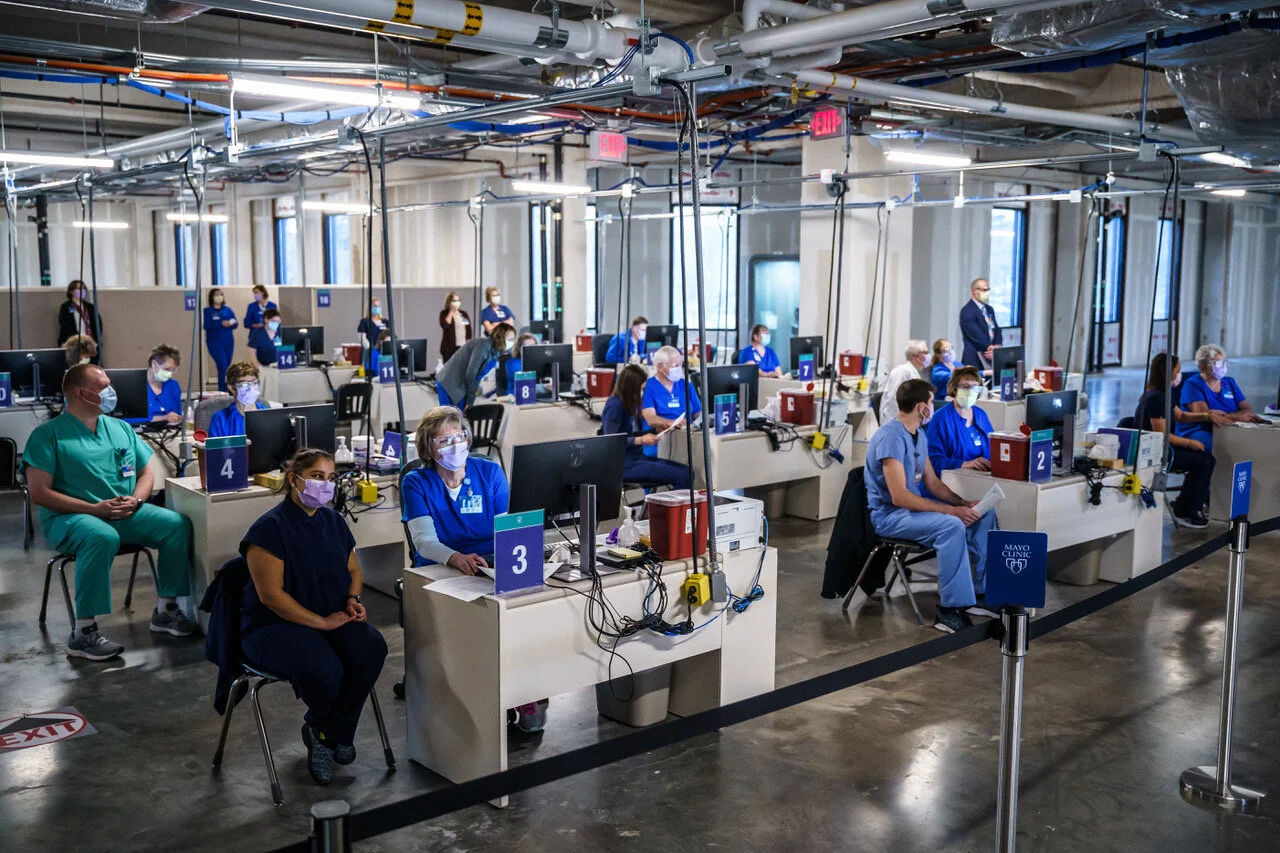Top health care execs: 'Effects of fear and deferred care' leading to preventable deaths
The leaders of the world’s two best hospitals are offering a stark warning about the effects the pandemic is having on patients with serious, complex and acute illnesses.
In an op-ed published this week in The New York Times, Dr. Gianrico Farrugia, president and CEO of Mayo Clinic, and Dr. Tomislav Mihaljevic, president and CEO of Cleveland Clinic, wrote that too many patients are delaying care out of fear of contracting the coronavirus.
Cancer patients, for instance, are missing necessary screenings, while those with heart attack or stroke symptoms are staying home during the critical window of time in which the damage can be reversible, they wrote.
Farrugia and Mihaljevic said the toll of their deaths may be close to the 100,000 deaths attributed to Covid-19.
“The trends are clear and concerning,” the two health care executives wrote. “Government orders to shelter in place and health care leaders’ decisions to defer nonessential care successfully prevented the spread of the virus. But these policies — complicated by the loss of employer-provided health insurance as people lost their jobs — have had the unintended effect of delaying care for some of our sickest patients.”
Farrugia and Mihaljevic pointed to studies showing significant decreases across the country in new cancer diagnoses and reports of heart attacks and strokes. One Mayo study found that emergency department visits are down by as much as 40 percent, but measures of the sickness of the patients is up 20 percent, underscoring how harmful it can be for people to delay care.
Left to right: Drs. Mihaljevic and Farrugia
While not mentioned in the Times op-ed, the slowdown in patient volume has also taken an economic toll on hospitals. Mayo alone temporarily furloughed and cut the pay of 23,000 employees. Only about 5,000 of those employees have since been called back to work.
On Wednesday, a Mayo spokesperson said that while there is still fluctuation, the hospital system’s “patient volumes are getting stronger.” The Clinic most recently reported operating just above 60 percent capacity, with inpatient surgeries running at about 70 percent capacity.
To offset some of the losses brought on by the pandemic, Congress allocated $175 billion for U.S. hospitals as part of the CARES Act. Of that money, Mayo received $170 million in relief funds from the federal government. Those funds, the spokesperson said, will be applied to “lost revenue and expenses associated with significant investments in testing, protective and medical equipment and unanticipated costs” due to Covid-19. Cleveland Clinic received $199 million in federal money.
However, the leaders of the two organizations — which finished 1 (Mayo) and 2 (Cleveland) in the latest Newsweek world hospital rankings — said the true cost of the pandemic “will not be measured in dollars;” rather, “it will be measured in human lives and human suffering.”
In the case of cancer alone, they estimate there could be a quarter of a million additional preventable deaths annually if normal care does not resume. Outcomes would be similar for people who forgo treatment for heart attacks and strokes, the two physician leaders wrote.
“The novel coronavirus will not go away soon, but its systemic side effects of fear and deferred care must,” said Farrugia and Mihaljevic.
The two leaders stressed that hospitals have taken “unprecedented actions” to ensure safety, such as restricting visiting hours, screening patients and staff at entrances, and providing spaces that allow for social distancing.
To date, there have been 28,869 confirmed cases of the coronavirus in Minnesota and 1,236 deaths. Statewide, there are currently 193 Covid-19 patients in ICU beds, the lowest total since May 9.
Sean Baker is a Rochester journalist and the founder of Med City Beat.
Cover photo licensed via Canva









